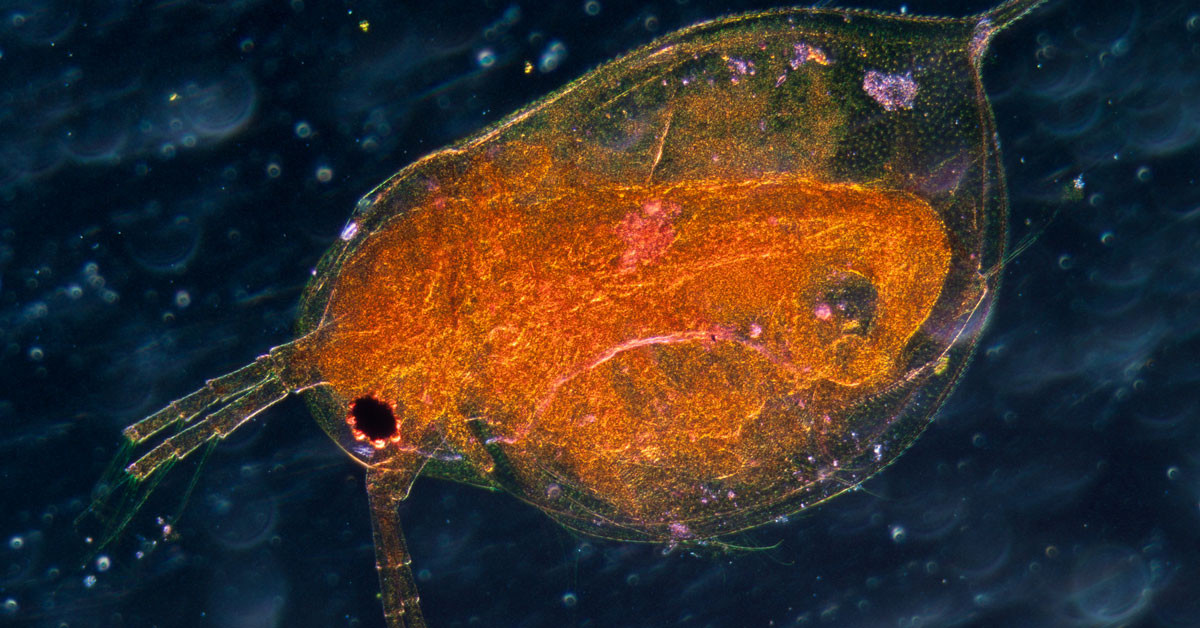
Even at approved regulatory levels, the weedkiller causes embryonic development failure, significant DNA damage, and interferes with animals’ metabolism and gut function
Prolonged exposure to environmentally relevant concentrations of the weedkiller Roundup causes significant harm to keystone species, according to new research at the University of Birmingham.
A team in the University’s School of Biosciences used waterfleas, or Daphnia, to test the effects prolonged exposure to concentrations of Roundup deemed safe by regulatory agencies.
They found that even at approved regulatory levels, the weedkiller causes embryonic development failure, significant DNA damage, and also interferes with the animals’ metabolism and gut function.
These findings are important since Daphnia are at the heart of aquatic food webs. They can be used to assess the impacts of environmental changes on ecosystems. The results also offer a starting point for tracking these effects across different species, including the potential effects of herbicides on humans.
Lead researcher, Dr Luisa Orsini, says: “Research surrounding Roundup has been controversial since it first appeared on the market in the 1970s. Claims that it causes diseases and disorders ranging from cancer to autism stack up against industry-paid reports arguing that the product has no untoward effects.
“The problem is that much of the evidence is rooted in outdated toxicity tests which only look at the number of animals that die on exposure to extremely high concentrations of these chemicals. These tests also overlook the pathological effects arising from long-term exposure to low doses.
“What we’re proposing is that toxicity is measured by looking at what happens to the animal at a molecular and fitness level following long-term exposure, which encompasses the entire animal life cycle.”
This ‘systems biology’ approach will enable researchers to understand the changes caused by these chemicals on fundamental functions, such as the ability to metabolize sugars or to repair wound tissue. By using similarity in molecular functions across species, the researchers can also infer the implications of these chemicals on humans.
The approach tested by the researchers can be applied to a wide number of chemicals in the environment. As well as herbicides, the team is applying their methods to investigate insecticides, anti-inflammatory drugs, antibiotics and heavy metals (arsenic), commonly found in contaminated water supplies around the world.
The team is working with the UK Environment Agency to bring new methods to regulatory agencies to screen for chemicals and their effect on biodiversity. Scientists and the Environment Agency have a long term goal of modernizing environmental practice to more effectively regulate the use of chemicals and mitigate their impact on humans and the environment.
“Using our methods it will be possible to identify and rank the most harmful chemicals that are getting into the environment,” says Dr Orsini. “We can’t stop environmental contamination in one step, but by identifying the worst offenders, we can work with industrial partners in a more targeted and effective way.
The new study:
L Orsini et al (2020). Roundup causes embryonic development failure, alters metabolic pathways and gut microbiota functionality in non-target species. Microbiome.
https://microbiomejournal.biomedcentral.com/articles/10.1186/s40168-020-00943-5
Source: University of Birmingham
https://www.birmingham.ac.uk/news/latest/2020/12/new-research-highlights-impacts-of-weedkiller-on-wildlife.aspx










